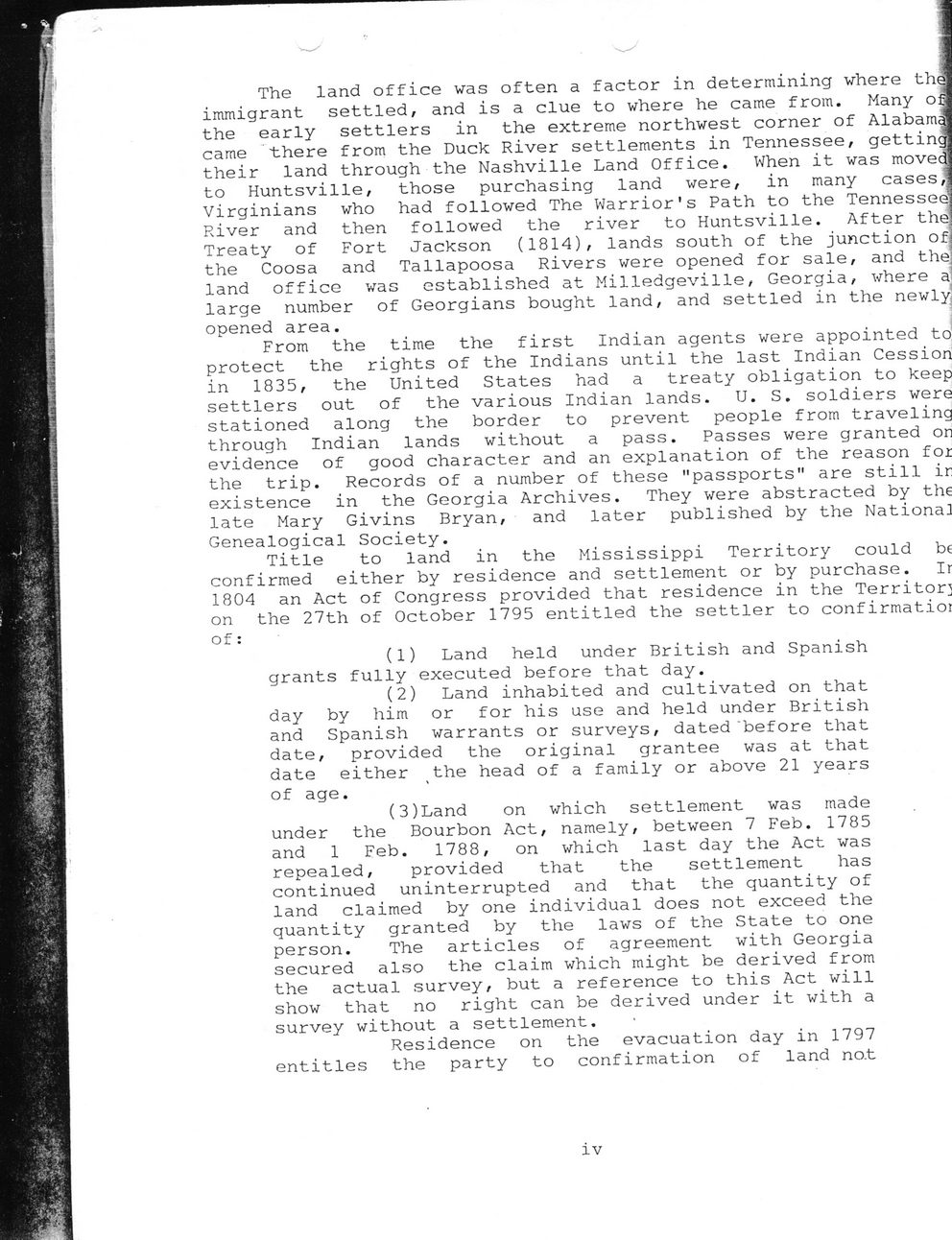This text was obtained via automated optical character recognition.
It has not been edited and may therefore contain several errors.
The land office was often a factor in determining where the immigrant settled, and is a clue to where he came from. Many of the early settlers in the extreme northwest corner of Alabama came "there from the Duck River settlements in Tennessee, getting their land through the Nashville Land Office. When it was movec to Huntsville, those purchasing land were, in many casesj Virginians who had followed The Warrior's Path to the Tennessee River and then followed the river to Huntsville. After the] Treaty of Fort Jackson (1814), lands south of the junction of] the Coosa and Tallapoosa Rivers were opened for sale, and the] land office was established at Milledgeville, Georgia, where al large number of Georgians bought land, and settled in the newlyj opened area. i From the time the first Indian agents were appointed to, protect the rights of the Indians until the last Indian Cession in 1835, the United States had a treaty obligation to keep settlers out of the various Indian lands. U. S. soldiers were stationed along the border to prevent people from traveling through Indian lands without a pass. Passes were granted on evidence of good character and an explanation of the reason for the trip. Records of a number of these "passports" are still ir existence in the Georgia Archives. They were abstracted by the late Mary Givins Bryan, and later published by the National Genealogical Society. Title to land in the Mississippi Territory could be confirmed either by residence and settlement or by purchase. Ir 1804 an Act of Congress provided that residence in the Territor] on the 27th of October 1795 entitled the settler to confirmatior of: (1) Land held under British and Spanish grants fully executed before that day. (2) Land inhabited and cultivated on that day by him or for his use and held under British and Spanish warrants or surveys, dated before that date, provided the original grantee was at that date either the head of a family or above 21 years of age. (3)Land on which settlement was made under the Bourbon Act, namely, between 7 Feb. 1785 and 1 Feb. 1788, on which last day the Act was repealed, provided that the settlement has continued uninterrupted and that the quantity of land claimed by one individual does not exceed the quantity granted by the laws of the State to one person. The articles of agreement with Georgia secured also the claim which might be derived from the actual survey, but a reference to this Act will show that no right can be derived under it with a survey without a settlement. Residence on the evacuation day in 1797 entitles the party to confirmation of land no.t iv

Hancock County 1 Burr-Betty-Fagan-Mississippi-Territory-(079)